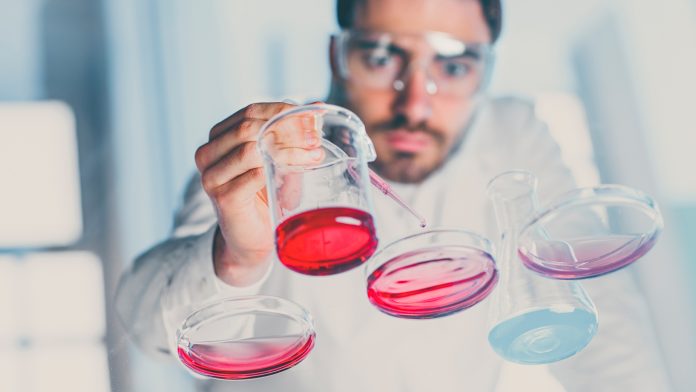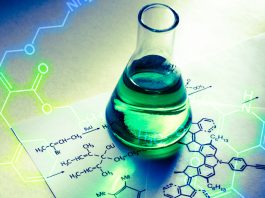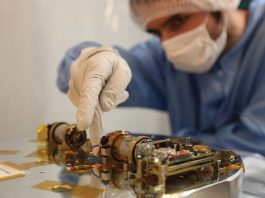European Federation for Medicinal Chemistry speaks to TIP about how medicinal chemistry is at the forefront of recent breakthroughs in therapies that address unmet medical needs.
The European Federation for Medicinal Chemistry (EFMC) plays a unique role at the European level, as the platform that bridges the medicinal chemistry and chemical biology communities from 26 scientific organisations in 24 countries, promoting co-operation and encouraging strong links between the national adhering organisations. However, the scope of EFMC is also global, facilitating contacts and exchanges between medicinal chemists and chemical biologists in Europe and around the World by organising symposia and short courses, by sponsoring meetings and medicinal chemistry schools, by publishing on relevant topics and by conferring awards and prizes.
At the core of EFMC activities is the biennial International Symposium on Medicinal Chemistry (EFMC-ISMC). These are highly international and dynamic symposia, with over 1,200 delegates, with a broad range of speakers and attendees from the pharmaceutical industry and academia. Alternating with ISMCs in odd-numbered years, EFMC is also involved in the organisation of the Medicinal Chemistry Frontiers in collaboration with the Medicinal Chemistry Division of ACS, and the international symposium on Advances in Synthetic and Medicinal Chemistry (ASMC). In addition, EFMC also organises intensive short courses on specific topics in medicinal chemistry and sponsors national scientific meetings and Medicinal Chemistry Schools.
An important role of EFMC is to acknowledge the excellence of medicinal chemists’ work around the World, by conferring three major awards: the Nauta Pharmacochemistry Award for Medicinal Chemistry and Chemical Biology, the UCB-Ehrlich Award for Excellence in Medicinal Chemistry and the Prous Institute-Overton and Meyer Award for New Technologies in Drug Discovery, which are given every two years for outstanding achievements in the field of Medicinal Chemistry. From 2010 onwards, EFMC established two new prizes to acknowledge the scientific accomplishments of young medicinal chemists, both in industry and academia.
The Innovation Platform speaks to EFMC EFMC President-Elect, Rui Moreia, about the role medicinal chemistry can play in addressing unmet medical needs.
To begin can you give us an introduction into medicinal chemistry, and what role does organic chemistry play in this?
In a brief sentence, we can say that medicinal chemistry is a chemistry-based discipline concerned with the design and synthesis of biologically active molecules. However, there is much more beyond this simple definition. Medicinal chemistry aims at creating new chemical structures that can be used as tools to interrogate complex biological systems in health and disease contexts, with the ultimate goal of discovering novel drugs to address unmet medical needs.
Medicinal chemists apply their knowledge in organic chemistry to prepare the chemical tools and lead compounds needed throughout all stages of drug discovery projects. Recent developments in organic synthetic methodologies have helped medicinal chemists to significantly expand the structural diversity of protein ligands and to gain access to molecular multifunctional constructs with complex architectures. Advances in late stage functionalisation of organic compounds and bioorthogonal chemistry have also been fundamental to prepare imaging ligands and diagnostic tools at different phases of drug discovery and development. However, medicinal chemistry is a highly interdisciplinary discipline that requires a strong interaction with scientists working in the fields of biology, pharmacology, biochemistry, pharmaceutical sciences, toxicology, and medicine in order to deliver the most efficient and safest drugs to patients. Not surprisingly however, developments in these domains have had major impacts on the scope of medicinal chemistry and its ability to accelerate drug discovery.
What are some of the latest advancements in medicinal chemistry?
Medicinal chemistry is at the forefront of recent breakthroughs in therapies that address unmet medical needs. The list is extensive, but some remarkable examples include the novel opportunities in immuno-oncology, where small molecules have been developed to stimulate intracellular pathways downstream of checkpoint proteins in innate or adaptive immune cells that monoclonal antibodies are unable to access, and the recent therapies for several malignancies that rely on the control of epigenetic mechanisms by small-molecule inhibitors. Much-needed novel anti-infectives have also been developed, providing effective tools to fight viruses and bacteria.
New modalities for challenging difficult targets are becoming increasingly important in drug discovery. These modalities encompass a wide array of chemical agents, including novel peptidic scaffolds, oligonucleotide-derived structures and bifunctional molecular constructs capable of exquisitely modulating complex biological processes, targets and signaling pathways at the transcriptional level, delivering the potency and selectivity commonly found with biologics. For example, proteolysis targeting chimeric molecules (PROTACs) have been used to cause degradation of target proteins in a highly controlled manner, revolutionising the strategy to accurately control protein levels in several diseases which lack effective treatment.
What are some of the current issues facing patients and social welfare, and how can these be overcome?
Patients face practical daily challenges of living with the disease, ranging from the interaction with multiple healthcare professionals to the sometimes-complex access to more efficient and safe therapies. Delivering accurate and timely information has become central in supporting the patient. Patient-centricity is now at the heart of many healthcare systems and drives the communication of pharmaceutical companies with patients, helping to better understand the support patients need and what actions can be done in order make a real difference to their lives.
Patient organisations are invaluable partners in this patient-centred vision, providing input through stakeholder advisory groups and expert panels, helping policymakers understand the experience of living with a disease or a condition. They are experts in channelling the voice of patients by representing patients’ interests in a united, coherent and consistent way which enhances the overall balance and nuance in policymaking.
Prof Rui Moreira
EFMC President-Elect
European Federation for Medicinal Chemistry
administration@efmc.info
Tweet @EuroMedChem
www.linkedin.com/company/1950001
www.facebook.com/EuropeanFederationforMedicinalChemistry
www.efmc.info
Please note, this article will also appear in the first edition of our new quarterly publication.









